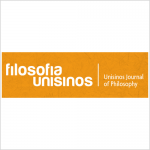Essentialism, reference and the necessary A posteriori
Vol 12, No 3 (2011) • Filosofia Unisinos - Unisinos Journal of Philosophy
Autor: Mihai Rusu
Resumo:
This paper elaborates on the epistemological incongruencies and shortcomings identified in Kripke’s view on reference. I question the consistency of Kripke’s notion of a posteriori necessity and show that all purported examples of necessary a posteriori truth are in principle amenable to a priori knowledge. The relevance of the notion of epistemic modality is also put in doubt, at least in a realist framework. This conforms not only to Kantian usage, but also to the actual way we use names and natural kind terms. Conclusions about a more permissive view of reference that conciliates causal and descriptivist theories, but also essentialism and the skepticism engendered by any valid assessment of the limits of human knowledge, are supplemented by examples and arguments showing that our overall conception about the nature of reality and knowledge reflects strongly upon our view of language and reference.
ISSN: ISSN: 1984-8234
Texto Completo: http://revistas.unisinos.br/index.php/filosofia/article/view/fsu.2011.123.01
Palavras-Chave: essentialism,theory of reference,epistemic po

Filosofia Unisinos - Unisinos Journal of Philosophy
The journal Filosofia Unisinos - Unisinos Journal of Philosophy is published once every four months by Universidade do Vale do Rio dos Sinos.
Articles must be original, unpublished, and not under consideration for publication anywhere else and can be written in Portuguese, English or Spanish
Filosofia Unisinos - Unisinos Journal of Philosophy prints articles, translations and critical book reviews. It also reprints papers that are considered fundamental to the area when authorized written permission is given by the original publisher.
